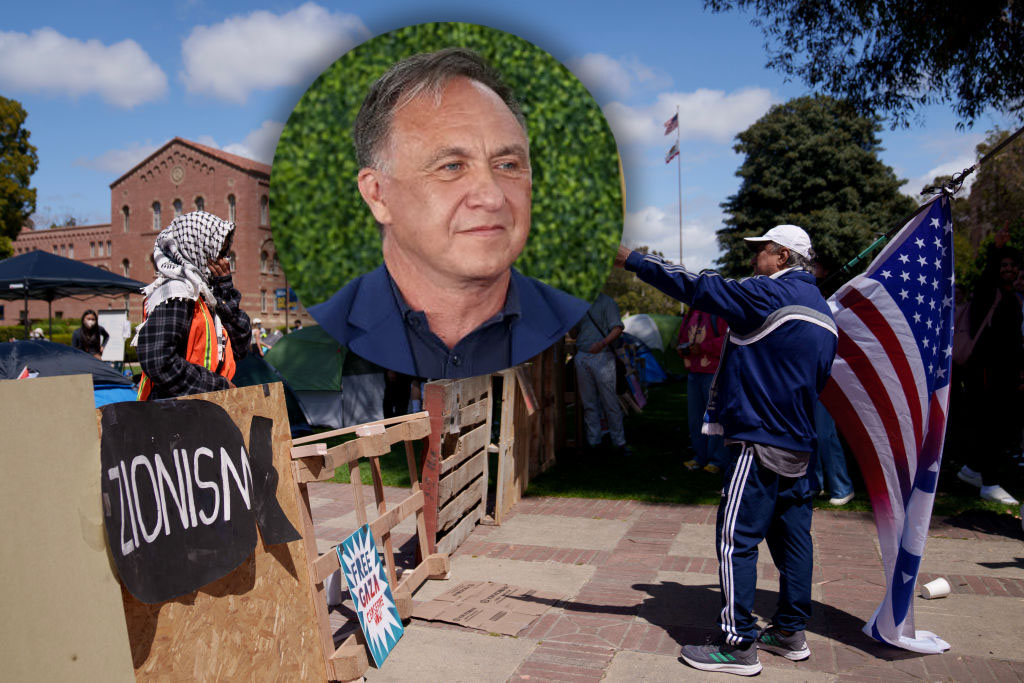On a recent trip to Manhattan, I traveled to the Lower East Side Tenement Museum, which I’d heard about from friends in Los Angeles.
The core of the museum is a restored 19th- century tenement house, which was a second point of landing, after Ellis Island, for a mixture of Italians, Germans and Eastern European and Sephardic Jews who made the hard crossing to America in search of better lives.
Built in 1863, the five-story tenement at 97 Orchard Street contained 20 three-room apartments, each encompassing about 325 square feet. These tiny apartments typically housed six or more people. It is hard today to imagine how they lived. The apartments had no showers, toilets or baths — those facilities were outside in the backyard. The hallways and most of the rooms were dark and dank. It must have been a challenging situation, to say the least. But thousands of families survived in these hovels until they could afford better.
During my visit I learned about the Rogarshevskys, a Jewish family from Lithuania that immigrated to the United States in 1901. All eight members of the family lived in one of those three-room apartments. The girls slept in the kitchen; the boys on a couch in the front room. The family’s breadwinner — Abraham — worked as a presser in a garment shop; it was physically punishing work. These conditions contributed to Abraham contracting tuberculosis and he eventually died from the disease in 1918. As his beloved wife, Fannie, sat shiva in the family’s tiny apartment, she worried over how she would survive without Abraham.
Fortunately for Fannie, one of the building’s landlords was also from Lithuania, and he offered her the job of tenement janitor in exchange for free rent. For the next 20 years, Fannie did all of the dirty, disagreeable jobs associated with keeping 97 Orchard Street maintained — including cleaning the outdoor toilets and showers.
The Rogarshevskys, finding that their family name was a bit difficult for the American tongue, changed it to Rosenthal before the family moved out and spread across the East Coast. Today, the Rosenthals hold a variety of professional jobs — one is a rabbi, another is a doctor.
The Rogarshevsky story struck a responsive chord with me.
In 1919, my grandfather and grandmother, Jose and Mariana, immigrated separately to the United States from Mexico. Jose was in his early 20s and Mariana was still a teenager. Both had heard about a place called Detroit, where thousands of people were finding jobs assembling automobiles. Like Abraham Rogarshevsky and his family, Jose and Mariana each believed that America held the promise of a better life. As it turned out, neither Jose nor Mariana got farther than Arizona, where they met and married in 1925. My grandfather went to work for the railroad, which provided housing for the newlyweds and countless other Mexican immigrant workers. They were assigned to a 500-square-foot tenement apartment in a concrete block of such apartments known as a "section." The toilet facilities were outside and each apartment was overcrowded.
My grandparents eventually traveled with the railroad to Los Angeles. But inside the walls of a tiny tenement apartment, the first generation of the Delgadillo family in America — much like the Rogarshevsky family a continent away — began to give life and shape to their American dream. Today, the Delgadillos who followed Jose and Mariana — my parents, siblings, uncles, aunts and cousins — have taken the dream beyond what my grandparents might have imagined. We have joined the ranks of teachers, computer engineers, firefighters, bankers, police officers, entrepreneurs and elected public officials. We are no longer guests or new arrivals — we are a part of America in every sense of the word.
Many Americans, and many American leaders, own stories like these. When I consider the similar roads that have brought us all to this wonderful country — the physical and emotional experiences that we share — I find myself more optimistic about the possibility of finding ways to bring us together.
Rocky Delgadillo is city attorney for the city of Los Angeles.





















 More news and opinions than at a Shabbat dinner, right in your inbox.
More news and opinions than at a Shabbat dinner, right in your inbox.